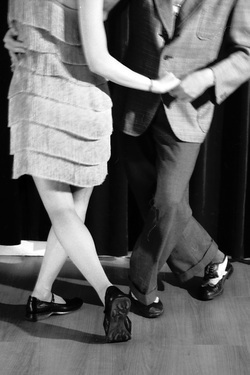Lori Ann Bloomfield's Blog, page 7
October 29, 2013
How To Submit Your Work to Literary Journals
 Image courtesy of Kibsri / FreeDigitalPhotos.net. If you would like to see your work published in a literary journal the first step is finding some magazines to send your awesome writing to. (Actually, the first step is to write something awesome, but I am assuming you’ve already got a stack of awesomeness on your desk just waiting to dazzle the world with.) To get you started I’ve gathered a few good online resources that publish calls for submissions:
Image courtesy of Kibsri / FreeDigitalPhotos.net. If you would like to see your work published in a literary journal the first step is finding some magazines to send your awesome writing to. (Actually, the first step is to write something awesome, but I am assuming you’ve already got a stack of awesomeness on your desk just waiting to dazzle the world with.) To get you started I’ve gathered a few good online resources that publish calls for submissions:Resources:
New Pages is a fabulous resource.
Poets and Writers magazine publish some calls for submissions on their website.
Places for Writers is a Canadian site that I like a lot. It publishes mostly Canadian magazine looking for work.
And if you haven’t already signed up for The Practicing Writer e-newsletter you’re going to want to do that now. It is a free monthly resource published by the fabulous Erika Dreifus. True story: I found the publisher of my novel through Erika’s newsletter. Get yourself signed up!
You could also swing by your local library or bookstore and browse the literary journals. You
can usually find submission guideline within the first few pages or at the back of the magazine. Spend some time reading the journals to be sure they publish work similar to yours. Of course, this also applies to any magazine you find online. You want the magazine to be a good fit. Sending your erotic sci-fi tale to a journal devoted to uplifting religious poetry is going to be a colossal waste of time for you and the editors.
Follow Submission Guidelines
Which brings us to submission guidelines. Now this is important: once you’ve found a magazine you want to submit your work to be sure to read the submission guidelines carefully and then follow them to the letter. This is seriously important. Many of these magazines receive hundreds of submissions a month. They’ve taken the time to create those guidelines for a reason and that reason is to make the editors’ lives easier. So, if you ignore those guidelines there is a good chance they’ll ignore your work. You’ve been warned.
Simultaneous Submissions
Most magazines nowadays accept simultaneous submissions. This is great because it means you can send your story to more than one magazine at a time, therefore shortening the time it will take you to get published. But don’t go overboard and submit your story to a gazillion magazines at once. As a rule of thumb I usually only submit to three magazines at a time, but there is no hard and fast rule on this. Use your own judgement.
Once you have submitted your work it’s a good idea to create a file on your computer to keep track of where and when you have sent it. Magazines often give you an indication of how long it will take them to get back to you in their guidelines. Take these with a grain of salt. It has been my experience that magazines are either very quick (you hear back from them within a few weeks) or
pretty slow (you get an email months later, or years later, or never). Having a record of when you sent your work lets you know when it is time to check in with an editor with a friendly email, (“Hi, I was wondering if my story was still under consideration?”) or when to move on and send it somewhere new.
Don't Make a Big Deal About Rejection
When you receive an inevitable rejection letter keep in mind that rejection is an unavoidable part of the writers’ life. Everyone gets rejection letters so don’t let it become a bigger deal than it is. It is all part of the game. What I do when a piece is rejected is reread it. If I can see a way to improve it, I do. If not, I send it right back out to someone else.
Keep Going!
Keep sending your work out. That’s the biggest secret to getting published. Your words will never
get published if you let them languish on your desk. Keep your work in circulation.
Keep writing new stuff. And then one fine day an email will arrive in your in box telling you that your story has been accepted for publication. And that will be a great day!
Published on October 29, 2013 17:40
October 22, 2013
Overwhelmed by Writing Your Book?
 Image courtesy of Franky242 / FreeDigitalPhotos.net I am midway through writing my second novel and feel the way I imagine a long distance swimmer feels when they can no longer see either shore. I am somewhere in the middle. There is only me and this unjudgeable distance still to cross before I touch land.
Image courtesy of Franky242 / FreeDigitalPhotos.net I am midway through writing my second novel and feel the way I imagine a long distance swimmer feels when they can no longer see either shore. I am somewhere in the middle. There is only me and this unjudgeable distance still to cross before I touch land. At times like these it helps to forget the big picture and instead focus on the small.
Writing a book can be overwhelming. After the initial exhilaration of diving in the water and swimming away from shore we begin to sense the vast sea of words that must be crossed. We
begin to sense the ocean of possibilities that must be successfully navigated. It can be
daunting. It can be scary. It is certainly hard.
For me, focusing on the small means thinking only one page ahead. My one typed page is the
equivalent of one stroke for a long distance swimmer. Only when that page is finished do I allow myself to think about the next one. In this way I move steadily forward.
This is the only way I know to cross the great distance between the first page and the last. In
this slow, steady way great distances are crossed. Shores do appear in the distance, then grow closer, until finally they become terra firma to haul myself up and stand upon.
A story, however vague at first, emerges from the imagination then slowly, page by page, draft by draft, comes into focus, until it is a book to be shared.
Writing Prompt: Tell me about a time when you gave up. Write for ten minutes.
Published on October 22, 2013 17:36
October 15, 2013
How to be a Genius
 Would you believe me if I told you that you were a genius? Probably not. The word genius is intimidating.
Would you believe me if I told you that you were a genius? Probably not. The word genius is intimidating.Mostly because it is so appealing and yet feels so far beyond our own capabilities. Who doesn’t want to be a genius? To be considered a person so smart, so special, so far beyond the ordinary?
Yet the Latin root of the word genius means: the spirit of a place.
So for a person to be a genius it means they must fully and thoroughly inhabit themselves. They must fully and thoroughly be themselves.
And what does this mean for our writing? How can our writing be genius? How can it be:
the spirit of the place?
Well, the place would be us. So, if we were genius writers we would be writing things that were a
reflection of our deepest self, of our truest beliefs.
We would not be chasing trends in the publishing world. We would not be trying to write the next best seller. We would not be trying to write things that would attract an agent or a publisher.
We would be writing our stories. The stories we were born to tell. The stories only we can tell.
We recognize these stories because they do not deplete us, they continually fill us up as we write.
But it is not easy to touch this place of genius inside ourselves, let alone stay in touch with it long enough to draw out our stories. When I think of genius in this way I see in my mind a murky pond. I see its waters churned up, its bottom obscured. That’s what most of us are like: churned up from constant busyness, from constant rushing, from believing we are not good enough as we are. Then I think of the same pond, still and calm, its waters clear all the way to the bottom.
That is what I think genius is like.
It means we must stop churning and come to rest in stillness, at least sometimes. During those times, if we practice them frequently enough, we will be able to see clearly to our center, to that spirit of place that resides in us all.
The wonderful thing is we are all capable of being a genius. All it takes is a certain weariness with trying to be things we aren’t and the courage to be what we are.
And then to write from that place.
Writing Prompt:
Think of a time when you were proud of yourself. When you did more than you thought you were capable of. Tell me about it. Write for ten minutes.
Published on October 15, 2013 17:27
October 8, 2013
Why Do You Write?
 Sometimes I wonder why I write. I ask myself: why struggle to write books or stories that so few people may even stumble across in this vast world of words? Why try to add to a mass of literature that already holds more treasures than a person can read in a lifetime?
Sometimes I wonder why I write. I ask myself: why struggle to write books or stories that so few people may even stumble across in this vast world of words? Why try to add to a mass of literature that already holds more treasures than a person can read in a lifetime? Then I remember.
I write because the act of creating and shaping stories gives meaning to my life. It is mostly
through writing that I arrive at any understanding of myself and the world. For me writing is an ink-driven pilgrimage and my time at the desk is as soul-enriching as time spent on my yoga
mat or on a meditation cushion.
I write because words are how I connect with the world and with myself. In that sense my words are no different than the first cave paintings. They emerge for the same reasons and by the same impulse. To say: I was here. To say: I thought and dreamed and struggled and occasionally triumphed. To say: I am no different than you.
Years of writing have convinced me that the work of shaping stories has shaped me. That
through a dedication to craft and truth, to self-exploration combined with a curiosity about and compassion for the world have worn away some sharp edges of judgement and stripped off a few layers of armour from my heart. I would not be who I am without writing the stories I have written. My work creates me as much as I create it. I keep writing, curious to discover who I will become.
What about you? If there was no chance of fame and fortune, would you still write? Would words still pore from you? Would your stories still crack you open and be told?
Published on October 08, 2013 18:17
October 1, 2013
Writing is Not a Competitive Sport
 Image courtesy of Ponsuwan/ FreeDigitalPhotos.net When I take a yoga class I try not to pay any attention to what
Image courtesy of Ponsuwan/ FreeDigitalPhotos.net When I take a yoga class I try not to pay any attention to what other people are doing on their yoga mats. It is, of course, tempting to peek at others and see how flexible they are, then try to match or exceed them. I suppose this is human nature. Perhaps, more accurately, it is ego-nature. But does this improve my yoga practice? Of course not.
The goal of yoga is to be in the moment and to quiet your thoughts. So, obviously, by comparing myself to everyone else I am not doing yoga at all. What I am doing is turning yoga into a competitive sport.
The same holds true for writing. Comparing my writing to other writers’ work will not make me a better writer. It will, however, make me a crazier one. I could spend my days comparing myself
to the giants of literature and feeling like a failure until I am too depressed to even pick up my pen. But I don’t. (Okay, there have been a few days like that. That’s how I learn this stuff.)
Writing, like yoga, is not a competitive sport. But sometimes it is easy to forget this. Deep down I know that what I really want is to write like me. Specifically, I want to write to the best of my abilities. I want to reach my highest potential. I want to see who I am on the page. This is my goal. Trying to write like someone else, even wishing I were a different sort of writer, takes me farther away from this goal.
In this way being at my desk is a lot like being on my yoga mat. I try to keep my focus on my
own practice, not on anyone else’s. And when my ego-nature occasionally surfaces I remind myself of why I am doing my practice:
-to reach my highest potential
- to be awake in the world
-to know my deepest self
- to be compassionate to myself and others
That’s why I do yoga. And that is why I write.
Why do you write?
Published on October 01, 2013 17:42
September 24, 2013
Preparing to Write
 Whenever I sit down to write I perform a small ritual. This is so natural to me I hardly notice it anymore. The first thing
Whenever I sit down to write I perform a small ritual. This is so natural to me I hardly notice it anymore. The first thing I do, even before picking up my pen, is to pause. I take a few deep breaths and consciously let go of anything I may be
clinging to from the ‘real world.’ I (temporarily) let go of worries, my ‘to do’ list, etc. Then I become aware of my surroundings. I look at the sky if I can see it, I listen, smell, feel. I root down so I am steady in what I am about to do.
Then I shift my attention to my fictional world and use my senses in the exact same way to become aware of that world. I see where my story is located, I listen for it sounds, smell its scents, feel what is happening there. When it is real enough I pick up my pen and begin to write.
Anyone watching me would assume I had paused, searching for words.
They would be right. But they would also be wrong.
I am searching for words, but I am doing much more than that. I am preparing to walk the tightrope into my imagination. I am building a bridge between my real world and my fictional one. I am shape-shifting into my characters.
There is magic to writing and this is how I cast my spell. How about you? How do you
prepare to write?
Published on September 24, 2013 17:40
September 20, 2013
Word on the Street
 This Sunday, September 22, is the Word on the Street festival in Toronto. I will be at the Toronto Public Library's booth (south-west corner of Wellesley and Queens Park Circle) from 5:00pm to 6:00pm. Drop by and say hi!
This Sunday, September 22, is the Word on the Street festival in Toronto. I will be at the Toronto Public Library's booth (south-west corner of Wellesley and Queens Park Circle) from 5:00pm to 6:00pm. Drop by and say hi!
Published on September 20, 2013 18:34
September 17, 2013
Overcoming Creative Roadblocks
 This is how it happens: your writing is racing along, words are flowing, you’re feeling happy, the world is wonderful. Then, bam! The words disappear, the writing stops, your brain puts on the brakes and you sit at your desk, shaken, wondering what just happened.
This is how it happens: your writing is racing along, words are flowing, you’re feeling happy, the world is wonderful. Then, bam! The words disappear, the writing stops, your brain puts on the brakes and you sit at your desk, shaken, wondering what just happened. You’ve hit a creative roadblock.
But don’t worry. I’ve discovered a simple two-part solution that gets the words flowing again.
Have you ever tried to remember someone’s name and couldn’t, then when you stopped the name suddenly popped into your head?
The same principle works when you hit a creative roadblock.
The first thing you need to do is forget about your writing for a while. Go for a walk.
Play with the dog. Do some yoga. Clean your closet. Do whatever it takes to get your mind
off your writing troubles.
This gives your brain a bit of breathing room, some space in which to solve the dilemma. And it will, because your brain enjoys solving puzzles. I suggest staying away from your writing for at least a few hours, maybe even a day or two. It’s also a good idea to work on other writing projects during this time.
The second part of this two-part solution is when you return to your writing, go to the point where your writing hit the roadblock and reverse. Slowly reread the last few pages you wrote. Often what happens with me is I move back a scene or two and begin to feel my creativity shifting into
gear. Words and ideas start bubbling again. Creative roadblocks often feel like I took a wrong turn in the plot right before my writing ground to a halt. It’s like driving in an unfamiliar city. Sometimes you take a wrong turn and hit a dead end. The only thing to do is back up and try another route.
Even though creative roadblocks are frustrating, I’ve learned to pay close attention to them, and even to be grateful. I take them as signs that I may be about to drive off course. They give me the opportunity to slow down and reconsider my choices, to evaluate the direction my plot is heading in.
Give it a try the next time you hit a creative roadblock. Don’t be surprised if after altering your course an answer appears out of nowhere and you start speeding down your own creative highway again.
Published on September 17, 2013 17:29
September 10, 2013
Dealing with Interruptions
 When writers ask me how to be more productive I always tell them to get a writing schedule and stick to it, even though I know there will be times when they won’t be able to. The reality is life will interrupt even the most dedicated writer. Not even a fortified garret can protect us from life’s demands and upsets. The good news is you can learn to dance with the interruptions.
When writers ask me how to be more productive I always tell them to get a writing schedule and stick to it, even though I know there will be times when they won’t be able to. The reality is life will interrupt even the most dedicated writer. Not even a fortified garret can protect us from life’s demands and upsets. The good news is you can learn to dance with the interruptions.Interruptions tend to fall into two categories: the expected and the unexpected. The hardest to deal with is, of course, the unexpected: the illnesses, the emergencies, the general mess of life going awry. Fortunately, these do not happen as often as the expected interruptions, and the expected ones are usually easier to deal with.
Since it is just us writers here, let’s talk about our number one expected interruption: our families. (If your family tiptoes around the house, hushing each other while you write please don’t tell me unless you have a spare room I can move in to.) Because family and close friends often fall into the category of expected interruptions it pays to have a plan. This will help you write more and fume less. Your plan may be to wake up before anyone else in the household to write, or to write on your lunch break at work, to write in your car, or on the subway. It may mean forming a writing group and getting together with other like-minded writers to write in blissful silence for a set length of time. It may mean screening your calls and only answering your phone if it is an emergency (one of my favourites).
For me, expected interruptions come in two sizes: the small ones that I deal with as they crop up like opponents in a video game, and the large ones that I devise plans for. A small one would be the technician arriving tomorrow to hook up my new internet (I’m writing now, in case he disrupts more of my day than I expect). Big interruptions are things like family vacations and the month of December.
Yes, the month of December. Every year December is a bad month for me, writing-wise. The holidays create too many distractions and too much work for me to have enough energy left over to write well. Once I realized this I decided December needed a plan. This year I am going to work on a short story, instead of my novel throughout the month. Something short will better fit into
the gaps of my chaotic days. If all goes well I may finish a story during those dark, final days of the year, and if I don’t then the New Year will begin with a short story already underway. It’s win-win! In other words, it’s the perfect strategy for December.
Since I finally faced up to the fact it is impossible for me to get any writing done on family vacations, I now leave my manuscript at home, but do take my journal and books about the craft of writing. Reading about writing is the next best thing to actually writing and lets me feel semi-productive. Also I try to treat the entire vacation like a writing adventure hoping to be inspired by things I wouldn’t see in my normal day to day life.
Though I dream of long, quiet hours of uninterrupted silence at my desk I rarely get them. Life
has a way of slipping under the door and bringing chaos with her. The trick is to be smarter, to be more creative than the interruptions. The goal is to keep the ink flowing. I like to imagine that my life and my writing are dance partners who occasionally step on each other’s toes but always get back in step.
Published on September 10, 2013 17:35
September 3, 2013
Why You Need a Writing Practice
 A writing practice can be the backbone of your writing life, and yet, many writers don’t have one. As writers we often feel that our writing must take a form, such as a short story or novel. We believe if we are not writing with a goal in mind, we are wasting time. Too often we write only with an eye on
A writing practice can be the backbone of your writing life, and yet, many writers don’t have one. As writers we often feel that our writing must take a form, such as a short story or novel. We believe if we are not writing with a goal in mind, we are wasting time. Too often we write only with an eye on publication.
We forget that in addition to our goals, whether they be to write books, articles, short stories or screenplays, we need a safe place in which to play, explore and daydream. A writing practice can be such a place. Just as artists have their sketchbooks, we need a place, with no critics, where we can doodle with words and dance with our imagination. This space, away from our ‘real’ writing is what feeds us. It inspires us and lets us know what is currently important to us, what needs to be said.
There are as many different kinds of writing practices as there are writers. Over the years I have
used Natalie Goldberg’s version, found in her book, “Writing Down the Bones.” I’ve also done “Morning Pages,” Julia Cameron’s version of writing practice from her book, “The Artist’s Way.” And
I have developed my own writing practice which I call, “Ink Meditation.”
Ink meditation is simple. To start, grab a notebook and pen. Get silent and simply come aware of what is happening in this moment. Then begin describing it using as many of your five senses as you can. See, hear, smell, touch and taste whatever is happening. When I do ink meditation it may be just a paragraph, or it may go on for pages, but it is always rich and vivid. I try to capture the moment fully and deeply. I offer no opinions about it.
Here is a short example:
“Beyond the window is the night. Below, the smell of rain drifts up from the pavement, above is the distant rumble of an airplane. Red tail lights drive away, passing in and out of the orange circles cast
by the streetlamps. Everyone has somewhere to go but me.”
Ink meditation is my way of grounding myself, of rooting down in the moment. It is also a drama
free way of writing. For me too much journaling can bring out my inner whiner more than I like.
Ink meditation also keeps me present. A certain style of writing prompt pulls me back into the past too much, which doesn’t work for my creativity, I have noticed.
This is why it is good to try different methods on your way to developing your own writing practice. You will discover what works for you, and what doesn’t, and ultimately it will lead to your own version of writing practice that best serves you and your Muse.
I think the most important reason for developing a writing practice is that it builds confidence.
Daily writing makes you feel like a writer. It will allow you to grow more comfortable in your writerly skin. Through it you will become better at translating the world into words.
Also building a regular writing practice opens a place inside yourself for ideas and stories to take root and grow. Then, when a story demands to be formed on the page and birthed into the
world you will know you are a writer and are up to the task.
Published on September 03, 2013 17:50



